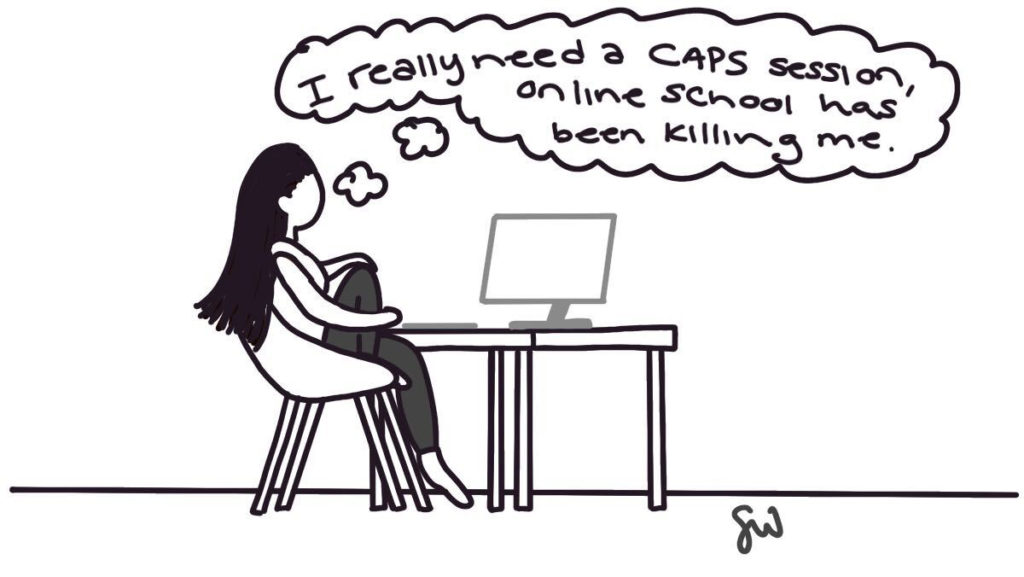When Ithaca College went remote for the semester because of the COVID-19 pandemic, the Center for Counseling and Psychological Services (CAPS) had to find a way to provide services to students remotely.
CAPS counselors are limited to providing clinical resources to those residing in the state of New York because certification requirements vary among states. A psychological license only allows the holder to practice in the state they are certified for, according to the American Psychological Association. This presents a challenge for students not in New York state because they are not able to receive clinical counseling, which includes long-term mental health care from a licensed therapist, like the ones at CAPS. These restrictions are not equitable and do not take into account the effects on college students who face many stressors in their everyday lives. This lack of access is especially prevalent at residential colleges like Ithaca College where students come from all over the country and world. The pandemic has only exemplified these inequities, and lawmakers need to be aware of this and make some amendments.
As a result of these restrictions, CAPS staff members have come up with ways to continue to aid students. Licensing restrictions do not prevent CAPS from offering nonclinical services, including workshops, crisis intervention and consultation, to students outside New York state. This shows effort on CAPS’ part to meet its students’ needs, despite the circumstances, it is working under. CAPS is even helping students outside New York state find local providers, an action that shows an extra initiative to make sure that students are getting the emotional support they need. In the past, CAPS has struggled to meet students’ needs because of not having adequate resources for the demand. It is promising to see that CAPS is coming up with innovative ways to support the student body through remote instruction.
Despite these efforts, the fact remains that not everyone can find a therapist in their hometown or even their country because of societal views of therapy and other factors. Going to therapy is still stigmatized in many parts of the world. Realistically, some students will not be able to get the help they need. Clubs like the Ithaca Ambassadors Program and Active Minds at Ithaca College are trying to find ways to help these students. This emphasizes that collaboration is necessary and that these informal support groups are critical.
Ultimately, CAPS is taking efforts to ensure that mental health support is equitable for all students. Collaboration across departments and student clubs is needed to ensure that a solution is found. Students’ mental health needs to be taken as seriously as their physical health. Every student who needs mental health support should be able to get it, no matter if they are in a different state or the other side of the world.














